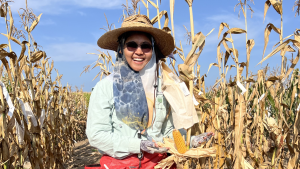
Nov. 25, 2025
Open-source drone technology will democratize precision agriculture
An interdisciplinary collaboration showcases Mizzou’s leadership in advancing smarter farming with better data.
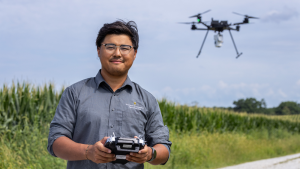
Sep. 26, 2025
Drones can more efficiently measure the health of corn plants, study finds
Mizzou researchers are getting a drone’s-eye view of corn stalks to help farmers better manage their crops through precision agriculture.

April 9, 2025
Mizzou Engineers set to present at Show Me Research Week
Next week, more than 60 engineering undergraduates, graduate students and postdocs will present their leading-edge research projects at the campus-wide event.
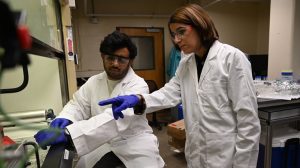
Feb. 26, 2025
Research reveals hidden risks from plastic-coated fertilizers in soil
A study by Mizzou Engineering researchers focuses on the microplastic pollution generated by polymer-coated, control-release fertilizers, highlighting the need for biodegradable alternatives.
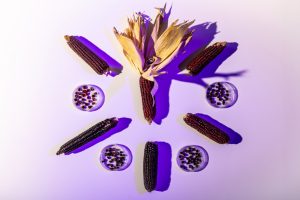
Nov. 20, 2024
Turning corn colorful
Mizzou researchers are demonstrating that purple corn has surprising health benefits. Would you try it?
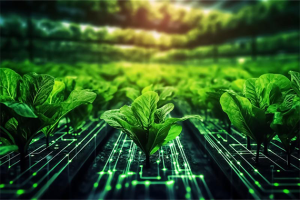
March 5, 2024
Engineer leveraging AI to help collaborators develop fungicides, prevent crop loss
Plant diseases destroy 125 million tons, or $220 billion worth of soybeans, corn, wheat and other crops in North America every year. Now, a Mizzou Engineer is leveraging artificial intelligence to help collaborators prevent that loss.

March 1, 2023
Missouri Water Center works to monitor water quality, quantities; train students
When it comes to water, there are a lot of stakeholders. Not only do we all need access to clean water—including fish and wildlife—but local economies rely on lakes and rivers for agriculture and tourism. When there’s not enough, droughts can destroy a year’s worth of crops. Too much can cause flooding that devastates communities. With those factors in mind, Mizzou established the Missouri Water Center a year ago, merging two former centers.

Feb. 10, 2022
Tellatin named to Forbes’ 30 under 30 roster
Sami Tellatin '15 was named to the Forbes 30 under 30 list. She is co-founder of FarmRaise.